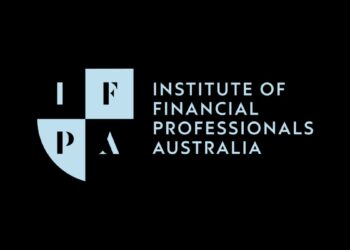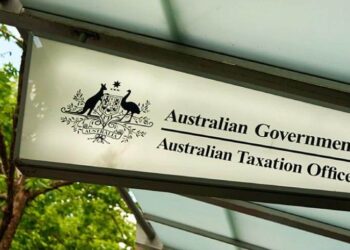DBA Lawyers’ director Bryce Figot explained for a trustee of a superannuation fund to be allowed to borrow, the asset must be held on trust for the trustee of the superannuation fund.
“Accordingly, the legal owner of [the] asset might be one entity, and that entity executes a deed confirming that it owns the asset as a trustee for the trustee of the superannuation fund. In other words, the asset is not actually registered in the name of the trustee of [the] superannuation fund,” Mr Figot said.
Although the insertion of the bare/holding trust is necessary in order to comply with the LRBA laws, it can cause taxation issues, Mr Figot said.
For example, Mr Figot said it’s sometimes questioned whether the bare/holding trust should lodge a separate income tax return.
The draft legislation, released yesterday, is set to clarify that the SMSF trustee should be treated as the owner of the asset of the bare/holding trust, instead of the trustee of the bare/holding trust.
“This means that the bare/holding trust is ignored and anything that happens to or results from being the owner of the asset, such as receiving dividends and franking credits, affects the SMSF trustee and not the bare/holding trust trustee. In short, the changes will implement a ‘look through’ situation,” Mr Figot said.
The legislature acknowledges that many have been operating as if these changes were already law, stating “the long-standing industry practice for certain types of instalment warrants and receipts has been to ignore the trust and to treat the investor as the owner of the asset.”
These changes, if enacted, will clarify that such treatment was appropriate Mr Figot said.
Mr Figot also noted the draft changes only affect income tax and don’t have any impact upon GST, and don’t change the position in respect of stamp duty.
“The laws and the practices in respect of the stamp duty vary … However, a general rule of thumb in states such as Victoria is that the most critical aspect to ensure stamp duty efficiency – and the aspect most commonly botched – is that the deposit is paid from a bank account in the name of the SMSF,” Mr Figot added.
“Again, the proposed changes have no impact in respect of stamp duty. Accordingly, it is still just as critical as ever that great care be taken in respect of stamp duty issues,” he said.
The changes are set to apply retrospectively from 1 July 2007.



I actually take a different view to both Julia and Lord Stockton. The ID’s are not saying that the income needs to go through the bare trust or that the bare trust receives income in its own right.
IMO they are looking at the concept of “non-arms length” income.
In both examples the property is funded by the beneficiaries at 0% interest with a high LVR, no other security and vague repayment terms.
The ATO is saying these arrangements would be impossible to obtain if you wanted to borrow on these terms from a non-related party. Therefore they fall under the legal definition of a “scheme” and the income gets taxed at the punative rate.
The issue, and it has been raised before is the zero % interest and whether this is in effect a way of circumventing the cap on contributions.
The way arounbd the bare trust mess would be to allow SMSF’s to borrow in their own name on a truly non-recourse basis with no access to other assets.
@Lord Stockton
I have a problem with your conceptual attitude towards negatively geared property in SMSF’s.
Generally, with negatively geared property held outside of a SMSF, I have observed that clients will use the rental which is topped up with other income to make the minimum loan repayments. The loan tends to stay around forever and the investor relies on capital growth to make the investment worthwhile.
In a SMSF, the rental income and additional super contributions can be applied towards loan repayments, resulting in a the property loan being repaid rapidly.
Initially, the “tax benefit” foregone in the initial couple of years may be greater .
However, at the end of the day, an investment should ultimately be acquired to generate a positive cashflow and return. An investor can still achieve the same tax deduction their concessional contributions if the tax deduction is the main focus.
Julia – staying with property. What the ATO seems to be saying in these ID’s is the rental stream now needs to go thru the Bare Trust. Don’t forget that the borrower must be the SMSF -Sect 67A. Thus that expense will stay in the fund’s books come what may.
WHat you are suggesting is the other expenses (eg depn, rates & taxes insurnace etc) will be greater than the rental -hopefully you are wrong.
But yes there is that risk if the property is untenanted even for only a few months in any year.
Conceptually I have a problem with negatively geared properties feeding into a SMSF. Why? When the value outside super is of any tax loss double or even tripple in some cases.
This is very interesting in relation to the ATO’s new ID 2014/39 and ID 2014/40 as they rely on sub sections 295-550(4) & (5) based on the assumption that the holding trust is not a bare trust but actually receives the income in its own right. And the fact that this approach would me the loss from a negative geared investment would be locked in the holding trust and franking credits would be lost forever. Why isn’t everyone jumping up and down about ID 2014/39 and 40 it is far more than just zero interest loans
Elaine, it stops a lender (Bank usually) having access to any other asset. Regardless of legislation, a lending organisation will usually take first and discuss (or negotiate)later, so if there was not a very defined ownership structure of the security, a lender would be tempted to start taking possession of other assets (such as the bank account, term deposits) and it is up to the borrower to fight them when the bank has taken all the cash resources. As silly or as complex the ownership may be, it sets the secured asset out separately as a stand alone and any lending/mortgage documentation can be more easily limited to comply with legislation. Other complications revolve around state charges like Stamp duty so that while they do “automatically” revert for tax and SMSF legislation, they may not for State duty purposes. Every state is different.
Is there any point to a bare trust?
Why not just change the law to remove the requirement for a bare trust? And also allow for automatic change of ownership to revert to the SMSF where there is an existing bare trust?
It seems to me that the bare trust is simply added complexity and cost for no benefit whatsoever. Can anyone tell me what the benefits are, if any?